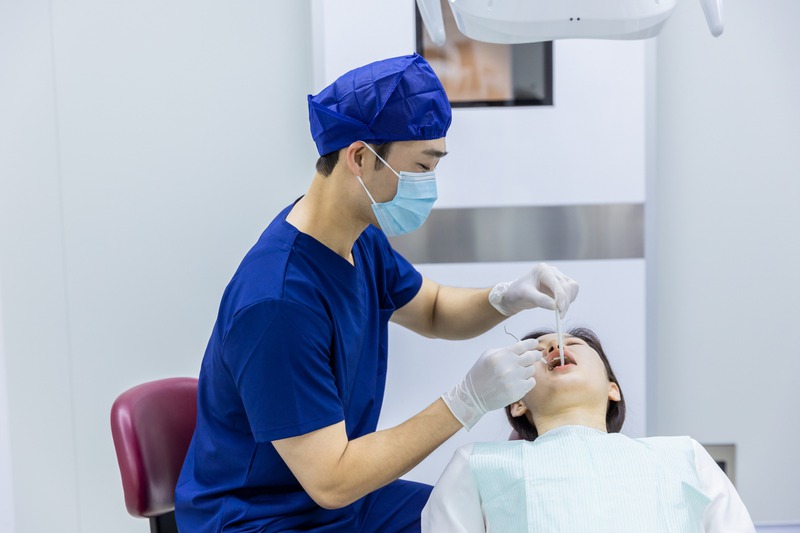Why Ignoring Sleep Apnea Could Harm Your Dental Health
Most of us understand that sleep is essential for our overall well-being. But did you know that ignoring sleep apnea could directly impact your dental health? It might surprise you, but the two have a deeper connection than you might think. Let’s dive in and explore how sleep apnea ties into your dental care.
Ignoring Sleep Apnea Harms Your Dental Health
Sleep apnea isn’t just about losing sleep or feeling tired during the day. When you don’t get treated for sleep apnea, it can lead to several dental issues, such as teeth grinding, gum disease, and even TMJ disorders. Here’s how:
1. Teeth Grinding
One of the lesser-known effects of sleep apnea is teeth grinding, also known as bruxism. When you experience sleep apnea, your body reacts to frequent interruptions in breathing. This stress response often leads to clenching or grinding your teeth during sleep. Over time, this can wear down your enamel, cause tooth sensitivity, and even lead to broken or chipped teeth.
2. Gum Disease
People with untreated sleep apnea often breathe through their mouths while sleeping. This can dry out your mouth, reducing saliva production. Saliva is crucial because it helps wash away food particles and bacteria. Without enough saliva, bacteria can thrive, leading to gum disease. The inflammation from gum disease can further contribute to other health problems, making it essential to address both sleep apnea and dental issues promptly.
3. TMJ Disorders
Sleep apnea is also linked to temporomandibular joint (TMJ) disorders. The constant strain from grinding your teeth can affect the joints connecting your jawbone to your skull, leading to pain and discomfort. If you suffer from sleep apnea, TMJ and TMD therapy might be necessary to alleviate the condition. Ignoring this connection can lead to chronic pain and a decreased quality of life.
How Dentists Can Help
Your dentist isn’t just there to clean your teeth. They play a crucial role in recognizing the signs of sleep apnea. During routine check-ups, your dentist may notice worn-down teeth or oral dryness. These signs can be indicators of underlying sleep apnea.
Customized Mouthguards
If teeth grinding is evident, your dentist may recommend a customized mouthguard. This appliance can protect your teeth from further damage while addressing one of the side effects of sleep apnea. It’s a simple, non-invasive approach to mitigate the harmful effects of grinding.
Referrals to Specialists
Sometimes, addressing sleep apnea requires a team approach. Your dentist may refer you to a sleep specialist for a comprehensive evaluation. In such cases, you can also consider effective sleep apnea treatments if traditional methods, like CPAP machines or lifestyle changes, aren’t sufficient.
Continuous Monitoring
Consistent dental check-ups are vital. They help monitor the condition and ensure effective sleep apnea treatment. Your dentist can adjust your treatment plan as needed, ensuring you’re on the right track to better health.
Why It’s Worth Addressing Sleep Apnea Early
Tackling sleep apnea early can prevent a myriad of dental problems. The right treatment and regular dental care can improve sleep and safeguard teeth and gums.
Here are a few benefits:
-
Better overall health
-
Reduced risk of gum disease
-
Prevention of tooth damage
-
Relief from jaw pain and discomfort
Remember, dental care is an essential aspect of overall health. By addressing sleep apnea, you’re taking a proactive approach to ensure your mouth stays healthy.
Simple Steps to Take
Now that you know the link between sleep apnea and dental health, here are some steps you can take:
-
If you suspect you have sleep apnea, see a healthcare provider for a proper diagnosis.
-
Visit your dentist regularly for check-ups and communicate any concerns or symptoms you notice.
-
Follow through with any recommended treatments or referrals by your dentist or healthcare provider.
-
Consider lifestyle changes such as losing weight, quitting smoking, or sleeping on your side to help manage sleep apnea.
Final Thoughts
Ignoring sleep apnea doesn’t just affect your sleep quality; it can also significantly impact your dental health. From teeth grinding and gum disease to TMJ disorders, the ripple effects are extensive. Addressing sleep apnea can help protect your teeth and gums, ensuring a healthier overall.
So, next time you visit your dentist, discuss your sleep habits. It might just be the key to unlocking a healthier smile and a better night’s sleep.
Categories

Recent Posts
Theme by The WP Club . Proudly powered by WordPress

